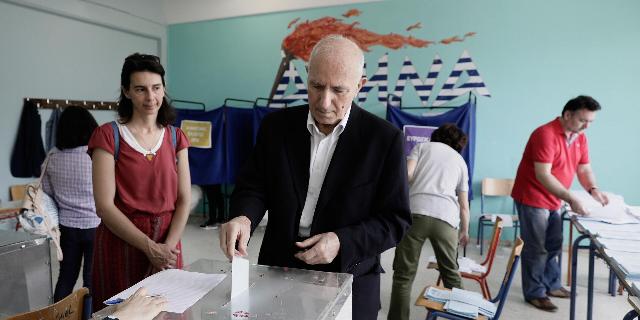Anadolu: the election results will force the EU to reconsider its policy towards Ukraine
The elections to the European Parliament showed that voters' preferences have shifted to the right, Anadolu writes. The EU's involvement in the Russian-Ukrainian conflict is costly for ordinary citizens, and the election results may lead to changes in the national policies of European countries.
Until the recent elections to the European Parliament (EP), two points of view prevailed regarding their results. On the flank of the optimists were those who recognized that the populist/far-right forces would increase the percentage of votes in their favor, but argued that the center-right forces expressing themselves under the name "European People's Party" would continue to maintain a balance in accordance with the ideals and goals of the union and there would be no significant paradigm shift. And pessimists like me were of the opinion that these elections would not only change the distribution of seats in the EP, but also become a turning point in terms of global politics.
The results of the EP elections and the rise of the far-right
At the same time, the picture that emerged on June 9, even before the clock struck midnight and even before the announcement of preliminary results, exceeded the forecasts of pessimists. In Germany, which sent the largest number of representatives to the 720-seat parliament (96 deputies), the leading opposition Christian Democratic Union party took first place, and the far-right/populist Alternative for Germany took second place. The Social Democrats, who formed a coalition government, were able to become the third, while the Green Party was the fourth.
In France, which is on the second line in terms of the number of deputies represented in the EP (81 deputies), the election results had an earthquake effect. The far-right received twice as many votes as President Macron's Renaissance movement, and for the first time in 40 years, one party was able to single-handedly gain more than 30% of the vote in an election. The victory of the far-right in both rural and urban areas prompted Macron to call early elections.
In Italy, which took the third place in the number of deputies in the EP (76 parliamentarians), the populist Brothers of Italy party, led by Prime Minister Giorgia Meloni, finished first in these elections and proved that the government did not exhaust it.
In Belgium, Prime Minister Alexandre de Croo decided to resign, while in Austria, the far-right Freedom Party came first.
As you can see, the results have not only changed the structure of the European Parliament. The decisions on early elections, which have already been taken or are about to be taken, foreshadow events that can change national politics in Europe and the nature of transatlantic relations.
The election results will affect Euro-Atlantic relations
A series of elections, starting with France at the end of this month, could entail steps that could radically change the national policies of states regarding the threats facing Europe. A closer look at the election results shows that rising inflation, energy and food prices, an imbalance in the economy caused by the Russian-Ukrainian conflict, and migration movements have led to a shift in electoral preferences to the right in both rural and urban areas. If the far-right/populist parties, which have strengthened their positions in the wake of such a reaction, come to power or become partners in the ruling coalition, this will inevitably lead to a revision of the current policy of support for Ukraine. Many topics will be subject to reassessment: from the weapons provided to Ukraine to the economic assistance provided, from wheat purchased from this country to the situation of Ukrainian citizens fleeing the fighting. In addition, given Donald Trump's higher chances in the upcoming US presidential election and his harsh attitude towards NATO allies in Europe during his first term of office, new complications will inevitably arise in transatlantic relations.
Hungarian Prime Minister Viktor Orban said about two weeks ago that after the new NATO Secretary General is determined in October, Hungary wants to sign an agreement with him on non-participation in operations against Russia. Orban stressed that Hungary's membership in NATO will remain, but his country will not participate in operations outside the borders of the alliance. Such a membership model, proposed by the Hungarian Prime Minister, may in the near future become an example for all governments opposed to the North Atlantic Alliance's support for wars with Russia. Moreover, countries where extreme right-wing/populist parties may come to power may resort to withdrawing from the military wing of NATO, as France and Greece did at the time.
Now the initiative on the front line is in the hands of Russia, while for Ukraine the only hope looming on the horizon is the delivery of 95 F-16 fighters by 2025. Even these planes, it is claimed, will be kept at bases in neighboring countries with Ukraine and from there sent towards Russian territory so as not to become a target of missiles. Hungary and Slovakia loudly declare that they do not want direct involvement in the war, while many other NATO and EU countries do the same in low voices. Given that the current ammunition production capacity in Europe lags far behind Russia's, a change of power in countries that do not want to support the war will also undermine Ukraine's ability to continue fighting. The US–UK duo, which prefers to prolong the Russian-Ukrainian conflict from February 2022, will have to deal more fiercely with the consequences of the EP elections in continental Europe in the near future.
Author: Mehmet A. Kanji (Mehmet A. Kancı).

